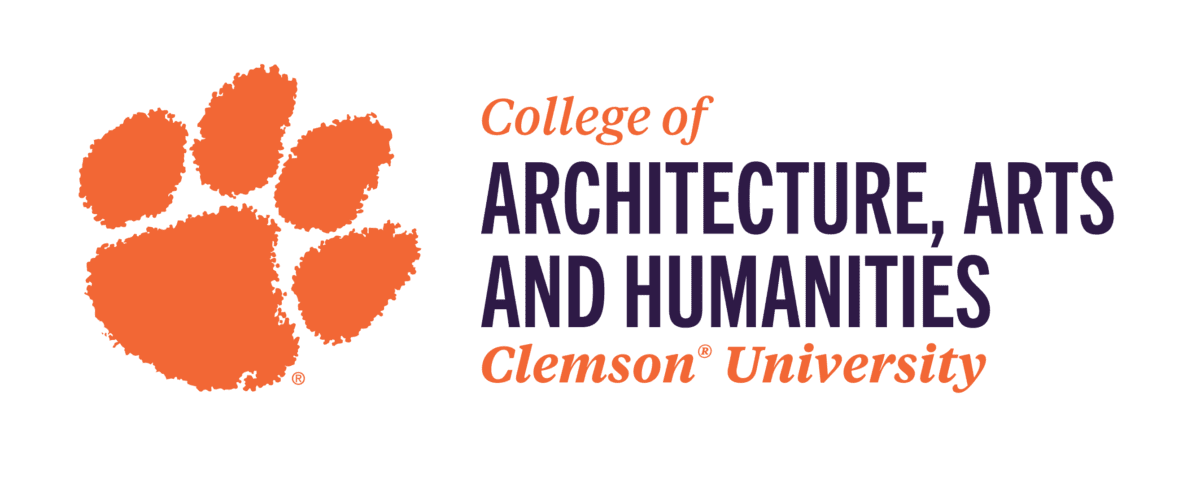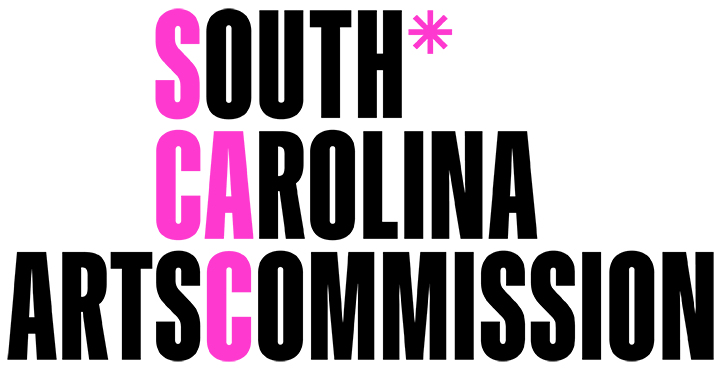Partnering with SC Humanities means sharing our commitment...
Partners share our commitment to offering high-quality, inspiring, engaging, and enriching programming in the humanities for the benefit of South Carolina citizens. Partners will be those organizations who are committed to public humanities and express their support of SCH through regular annual contributions.

Click to learn more about each Partner Institution:
College of Architecture, Arts, and Humanities
at Clemson University
The humanities are essential to Clemson University’s tradition as a “high seminary” of learning and its status today as an R1 research institution. The College of Architecture, Arts and Humanities (CAAH) proudly carries that tradition forward through general education and a diverse range of undergraduate, graduate, and interdisciplinary programs.
In Fall 2022, CAAH celebrated the opening of the new Humanities Hall, a nearly 60,000-square-foot building at the heart of campus. In addition to providing much-needed space for our humanities departments of English, History & Geography, Languages, and Philosophy & Religion, it underscores the centrality of humanities studies in undergraduate education. Our students’ firm grounding in the repository of collected human wisdom broadens and elevates the Clemson Experience from producing skilled workers to educated leaders. It conditions our students to move past knowledge of “how” to an understanding of “why.”
CAAH is excited to pair our motto of “Imagine. Create. Connect.” to SC Humanities’ promise of “Inspiring. Engaging. Enriching.” Together, we are committed to advancing the cause of humanities education in our state.
Edwards College of Humanities and Fine Arts
at Coastal Carolina University
The Thomas W. and Robin W. Edwards College of Humanities and Fine Arts at Coastal Carolina University is the humanistic and artistic hub of the Grand Strand region. The Edwards College offers undergraduate and graduate programs that champion intellectual rigor, celebrate innovation, and foster responsible citizenship. Our students learn locally but make an impact globally. Our public-facing research, lectures, and cultural arts programming allow community members to engage with pressing social issues, thought-provoking exhibitions, and inspiring concerts and performances. We know that diversity is a strength and that inclusion and equity make our scholarship, artistic endeavors, and community outreach more impactful. So the Edwards College strives to amplify diverse viewpoints, eliminate arbitrary barriers, and promote critical inquiry.
Francis Marion University
Humanities and the liberal arts provide the foundation every Francis Marion University student needs to grow and develop as an individual. The College of Liberal Arts offers undergraduate and graduate programs that promote intellectual growth, encourage innovation, and develop responsible citizens. Francis Marion University’s emphasis on liberal arts education allows students to move beyond how to understand why as it creates leaders.
The university’s public-forward research, lectures, events, and cultural arts programming lets community members learn about social issues, attend thought-provoking exhibitions, and inspiring concerts and theatrical performances.
South Carolina Arts Commission
The mission of the South Carolina Arts Commission (SCAC) is to promote equitable access to the arts and support the cultivation of creativity in South Carolina. We envision a South Carolina where the arts are valued and all people benefit from a variety of creative experiences.
A state agency created by the South Carolina General Assembly in 1967, the SCAC works to increase public participation in the arts by providing grants, direct programs, staff assistance and partnerships in artist development, arts industry, arts learning, creative placemaking, and folklife and traditional arts. Headquartered in Columbia, S.C., the SCAC is funded by the state of South Carolina, by the federal government through the National Endowment for the Arts, and other sources. Visit SouthCarolinaArts.com or call 803.734.8696, and follow @scartscomm on Facebook, Instagram, and Twitter for #Arts4SC and #SCartists content.
University of South Carolina
More info coming soon!
Questions?
For more information on ways to support SC Humanities, please contact Dr. Alice Taylor-Colbert, Development and Special Initiatives Consultant, or call the office at 803-315-4411.
SC Humanities is a 501(c)3 non-profit organization. All contributions are tax-deductible to the extent allowed by law.



